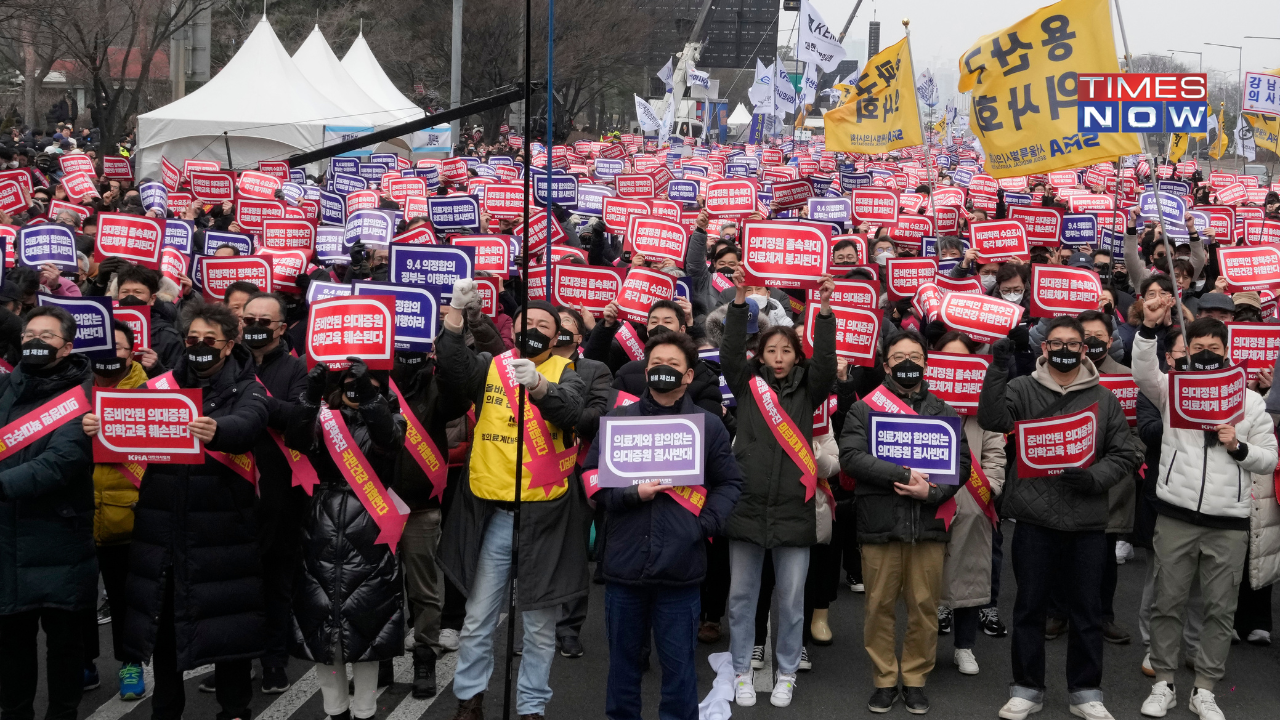Titanic's Final Dinner Menu Fetches Rs 84.5 lakh At Auction
Titanic Dinner Menu: A water-stained menu from three days prior to the Titanic disaster unveils the dining choices of passengers, featuring shellfish, salmon, squab, and Victoria pudding.

The first-class dinner menu from the Titanic, which went up for auction on Saturday evening in England, fetched 83,000 pounds ( Rs 84.5 lakh), as reported by the UK-based newspaper The Guardian. The last dinner for first-class passengers on the RMS Titanic, just three days before the ship struck an iceberg on its maiden Atlantic voyage and sank on the night of April 14, 1912, is depicted in the surviving menu that was auctioned.
The menu raises questions about who took it while evacuating to lifeboats and what Victoria pudding is.
The latter question has a simple answer: the boiled dessert served that evening with apricots and French ice cream is a mix of flour, eggs, jam, brandy, apples, cherries, peel, sugar, and spices. The menu, stained with water and featuring a White Star logo, lists the culinary offerings on April 11, including oysters, salmon, beef, squab, duck, and chicken, along with potatoes, rice, and parsnip puree.

This historical menu details the meals served the day after the Titanic left Queenstown, Ireland, heading to New York. It is being auctioned by Henry Aldridge & Son of Wiltshire, along with other Titanic artifacts, including a tartan deck blanket. Found in a 1960s photo album belonging to Len Stephenson, a community historian in Dominion, Nova Scotia, the menu is believed by Andrew Aldridge, the auction house manager, to be one of the few surviving first-class menus from that evening.
"I've spoken to several museums globally, and I've spoken to a number of our Titanic collectors," he said. "I can't find another one anywhere," The Guardian quoted Mr Aldridge as saying.
While Titanic artifacts at auctions fall into various categories based on their origin, including items recovered from the wreck, those owned by survivors, and others, like the luxurious dinner menu from April 11, likely taken as keepsakes from the ship.
Harry Bennett, an associate professor of maritime history at the University of Plymouth, expresses concerns about items believed to have been recovered from the bodies of victims, emphasizing ethical considerations.
"These things are probably better in museums than actually in private hands because it at least creates a kind of context for it where issues of profit are rather taken away from it," he told the New York Times this weekend.



































![Safari Thorium Neo 8-Wheel Luggage Set Trolley Bags (Set of 3) at just Rs. 5,599 [MRP 29,100]](https://savefree.in/uploads/images/202409/image_870x580_66f63845060f0.webp?#)












![Handmade Brown Mango Wood Chopping Board At just Rs. 89 [MRP 599]](http://savefree.in/uploads/images/202303/image_870x580_641bf7e9c2206.jpg?#)


